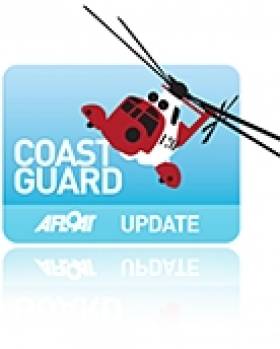Displaying items by tag: Stena Europe
Welsh Coastguards Carry Out Two Irish Sea Evacuations
A three year old boy and a commercial seaman have both been evacuated from two separate vessels due to medical problems yesterday afternoon.
Milford Haven Coastguard was contacted at just before 4.00 pm to report that a child had been taken ill onboard the roll-on-roll-off ferry Stena Europe. The vessel was 13 nautical miles west of Strumble Head. The boy was being attended to by a doctor and two nurses onboard the ferry who, after discussion with doctors at Aberdeen Royal Infirmary, advised that the boy needed to be taken off the vessel. Rescue helicopter 122 from RAF Valley was scrambled and the boy was airlifted to Withybush Hospital.
The little boy and his family were on their way home to Ireland when the child was taken ill, says Graham Warlow, Milford Haven Coastguard Watch Manager. We wish him a speedy recovery.
At the same time that the Stena Europe was in contact with Milford Haven Coastguard, the merchant vessel Marida Melissa contacted Holyhead Coastguard to report that they had their own medical emergency onboard. One of their seafarers, an Indian national, had become ill, and after discussions with doctors it was decided that the best course of action would be to evacuate him to hospital. However, the rescue helicopter was already needed for the ill child on the ferry and so Moelfre RNLI lifeboat was requested to launch with paramedics onboard.
We dont normally use lifeboats for medical evacuations but in this case, the child had to take priority, says Barry Priddis, Holyhead Coastguard Watch Manager. When the lifeboat crew arrived at the vessel, which was anchored off Moelfre, they assessed the scene and reported back to us that they were confident that they could evacuate the ill man off of the ship safely. The man was carefully lifted on to the lifeboat then taken back into Moelfre, where he was lifted into an awaiting ambulance, then on to hospital.





























































